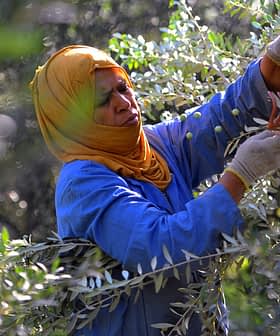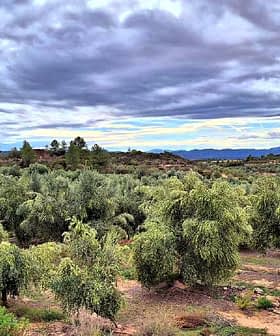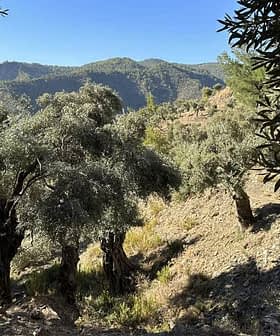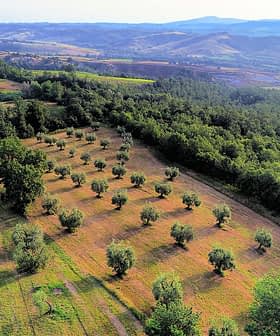Olive Oil Production and Consumption Down
The latest data from the International Olive Council for the 2016/17 campaign reveal a decline in olive oil consumption, particularly in Europe. but the outlook for the 2017/18 season is better.
Olive oil production in the 2016/17 growing season decreased by 20 percent compared to the previous year, with the biggest decreases seen in the European Union, Middle East, and North Africa. Despite the overall decline in production, some countries such as Turkey, Brazil, and China saw an increase in olive oil consumption, with the International Olive Council predicting a global increase in production for the 2017/18 season.
Olive oil production in the 2016/17 growing season contracted by 20 percent compared with last year, according to a report from the International Olive Council (IOC).
The biggest decreases were in the European Union, Middle East and North Africa. EU producers experienced a 25 percent decrease in production.
In Spain’s Autonomous Community of Andalusia, which produces more than two-thirds of Spanish olive oil, production decreased by 15.8 percent.
See Also:Olive Oil Market Data
Some in the region attributed this decrease to the lack of rain.
“Meteorological factors can affect the final harvest,” Rodrigo Sanchez Haro, Andalusia’s Minister of Agriculture, Fisheries and Rural Development, said.
“It is not yet possible to know how many olives will be left uncollected due to insufficient quality or yield, as well,” he said.
Italy experienced a hot and dry summer, receiving 30 percent less rain than normal. The lack of rainfall throughout the entire region has been mostly to blame for the decrease in olive oil production.
Greece, Portugal, Cyprus, Croatia, France and Slovenia were among the other EU nations whose production dipped.
In the rest of the IOC member nations, production fell by 10 percent.
Countries in North Africa and the Middle East experienced the largest of these production decreases. The unusually hot and dry summer faced by the whole of the Mediterranean region was partly to blame, but in some countries, political turmoil hurt production as well.
© Olive Oil Times | Data source: International Olive Council
Jordan (-32 percent), Tunisia (-29 percent), Israel (-17 percent), Morocco (-15 percent) and Libya (-11 percent) experienced the largest declines in production.
However, olive oil production did not decline in every IOC member nation. Egypt (+21 percent), Turkey (+18 percent) and Lebanon (+9 percent) all experienced substantial increases.
In spite of optimism earlier this year about increased production, Argentina experienced a 10 percent decrease.
Consumption
Global olive oil consumption was also down six percent over the same period.
Olive oil consumption in EU countries fell by 12 percent with the largest decreases occurring in Greece, France and Italy. The United States and Canada also experienced dips in consumption.
© Olive Oil Times | Data source: International Olive Council
However, Turkey, Brazil and China substantially increased their consumption. Many China watchers believe the world’s largest nation will continue to increase its consumption as a burgeoning middle class begins seeking higher quality food items from abroad.
For the 2017/18 olive oil production season, the IOC predicts that consumption will rebound, increasing by five percent.
IOC analysts are predicting a global increase of 14 percent compared with the 2016/17 season.
EU nations are expected to increase production by three percent. Italy (+76 percent), Greece (+54 percent) and Portugal (+14 percent) are all expected to experience robust increases in production rebounding from this year’s setbacks.
However, Spain is forecasted to continue its production decrease. The IOC predicts the world’s largest olive oil producer will fall by 15 percent compared with this year.
Other IOC members are anticipated to have much larger growth than the EU with production projected to increase by 51 percent.
Tunisia (+120 percent), Argentina (+74 percent), Turkey (+62 percent), Morocco (+27 percent) and Algeria (+27 percent) are all expected to have the largest production increases closely followed by Jordan (+25 percent), Egypt (+25 percent) and Libya (+12 percent).
Lebanon is the only nation, other than Spain, where production is predicted to fall with an eight percent decrease.
No one at the IOC was available to comment on the trends or predictions.









